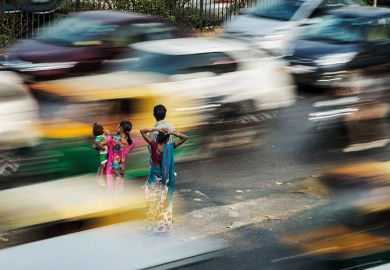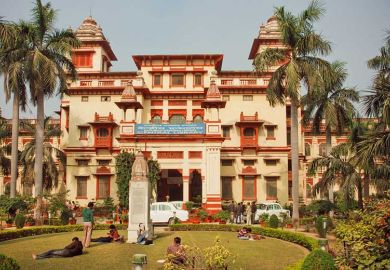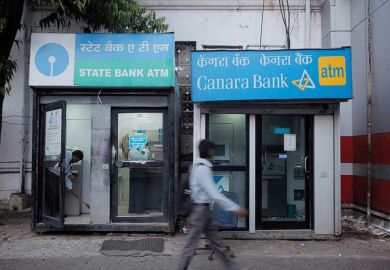Academics have broadly welcomed a pledge by India’s ruling party to increase student numbers by 50 per cent in selected institutions, but expressed doubts about implementation and safeguarding the quality of education.
The Bharatiya Janata Party’s manifesto, released in the run-up to the national election scheduled to be held in seven phases until 19 May, includes a promise to increase the number of seats in “central law, engineering, science and management institutions” by at least 50 per cent in the next five years.
The right-wing party, which has led India since 2014, also pledged to create 50 “institutions of eminence” by 2024. Last year, the government had planned to assign 20 universities with the status – which comes with additional funding and greater autonomy – but ultimately just six institutions were selected.
The centre-left Indian National Congress, the country’s other major political party, made no specific pledges on higher education in its manifesto but did promise to double the education budget to 6 per cent of gross domestic product by 2023-24.
Antara Sengupta, research fellow at the Observer Research Foundation in Mumbai, said that the BJP policy to increase student numbers would be “a positive step towards propagating excellence in education, given the high student population and proportionately [low number of places] in elite central institutes”.
She added that this would likely cover the 19 Indian Institutes of Management, the 54 Indian Institutes of Technology and National Institutes of Technology and the 27 Indian Institutes of Science and Indian Institutes of Science Education and Research.
However, she warned that “the government should not dilute the quality and terms of entry into these institutes” in the process, “as that would defeat the purpose of these elite institutions”.
The BJP has also pledged to create an arts, culture and music university, a hospitality and tourism university and a police university.
Ms Sengupta said that these new institutions would “further compartmentalise higher education in the country” when “the need of the hour is multidisciplinary universities”.
“Rather than putting funds in new single-disciplinary universities, the government should improve the already existing ones,” she said.
Ms Sengupta said that she had her “fair share of doubts” that the policies would be fulfilled given that “many such promises made in past campaigns still haven’t seen the light of day”, including a pledge by the BJP four years ago to launch a new national education policy. The last version dates back to 1992.
“In the absence of such a policy, there has been no definitive direction and objective of education in the country, furthered by fragmented, directionless policies announced by the government time and again,” she said.
Pushkar, director of the International Centre Goa, which describes itself as a non-profit autonomous society that brings together academics and creative people from India and around the world, said that increasing student numbers was “no longer a big issue” given the “massive growth in the private sector”. The main problem now, he continued, was that most institutions “offer poor quality education”.
“Public institutions are starved of funding; private institutions are driven almost entirely by profits. Overall, there are too few half-decent public and private institutions, and this is something that needs attention,” he said.
ellie.bothwell@timeshighereducation.com
Academics and university leaders will discuss how universities can encourage innovative teaching and learning practices at Times Higher Education’s Teaching Excellence Summit, which is taking place at Western University, in London, Ontario, Canada, from 4-6 June.
Register to continue
Why register?
- Registration is free and only takes a moment
- Once registered, you can read 3 articles a month
- Sign up for our newsletter
Subscribe
Or subscribe for unlimited access to:
- Unlimited access to news, views, insights & reviews
- Digital editions
- Digital access to THE’s university and college rankings analysis
Already registered or a current subscriber?








